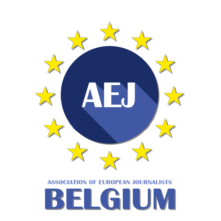By Benedetta Zimone

Over the last few years, Artificial Intelligence (AI) and misinformation have gone hand in hand, as evidenced by recent scandals in Europe. In Slovakia, far-right party Republika published two videos in which AI was used to imitate the voices of the Progressive Leader Michal Šimečka, sharing information that was not concordant with facts. In one of those videos, he expressed his will to raise the cost of the beer, but this has never been said by Šimečka. After the spread of these falsehoods, Šimečka denied any intention to augment alcohol prices, pointing out that his voice had been manipulated ahead of the national elections.
Thanks to technological development, AI is constantly transforming many aspects of our lives. For example, it has drastically improved education and instruction. Once such example is ChatGPT, which can make time management faster for students and teachers. AI can also improve our lives through personal assistants such as Alexa, Cortana, and Google Assistant. It can also also make hiring easier. AI can quickly compare the personal skills of the job candidates and avoid discriminating like human beings might otherwise do. By contrast, AI can address several threats and challenges concerning Democracy, privacy, and misinformation.
In this regard, the Left (GUE/NGL) political party organised a hybrid event at the European Parliament to explain how AI will change our lives in the future, highlighting the main benefits and disadvantages of this very powerful technological tool.
The group of experts highlighted the real and risky connection between AI, misinformation, and democracy. During the discussion, one of the panellists argued that algorithms isolate us from people who think differently, creating a sort of informational “bubble”. When we search for specific online information, AI generates customised data and advice based on the user’s search data. It will not show content which isn’t tailored to the user. Moreover, one of the panellists said AI had “the risk to disseminate opinions which could be extreme”.
According to the Centre for Research and Evidence on Security Threats (CREST), any kind of extremist propaganda can be created in less time by fewer people thanks to AI, making it difficult to understand if the content created is made by AI. The Council of Europe states that, 50 percent of the European Citizens argued that they needed new critical thinking skills to understand and cope with extremism and fake news in society. The most vulnerable people to fake propaganda and misinformation are the youth. That is because young people spend a lot of time online, listening to music, chatting on social media, studying, and playing video games, for instance. As the panelists pointed out, it is important to teach students how to identify fact from fake since it is a crucial democratic competence.
To fight misinformation, major online platforms such as TikTok, Google, Meta, and Microsoft have committed to the strengthened version of the European Code of Practice on Disinformation. The Code of Practice was voluntarily signed for the first time in 2018 by several online platforms and advertising industries to achieve the targets set out by the 21 points presented by the European Commission in April 2018, aiming to commit to transparent political advertising and anti-misinformation rules, for example.
All these online platforms delivered their last reports on the implementation of the Code last September. According to these reports, TikTok, for instance, has indicated that 140,635 videos have been removed for infringing its misinformation policy. Additionally, Google reported that it blocked €31m in misinformation advertising from reaching the EU. Finally, further information has been reported regarding the fight against misinformation about the Russia-Ukraine war. YouTube removed 411 channels and 10 blogs connected to the Russian state and Tiktok removed 211 videos after it incorporated Russian, Belarusian, and Ukrainian fact-checking.
Vice-President Věra Jourova highlighted the importance of a unique European cooperation during her last speech at the Press statement at the European Commission. “This variety of actors is at the heart of the Code, because fighting disinformation and information manipulation online requires a whole-of-society approach,” she concluded.
